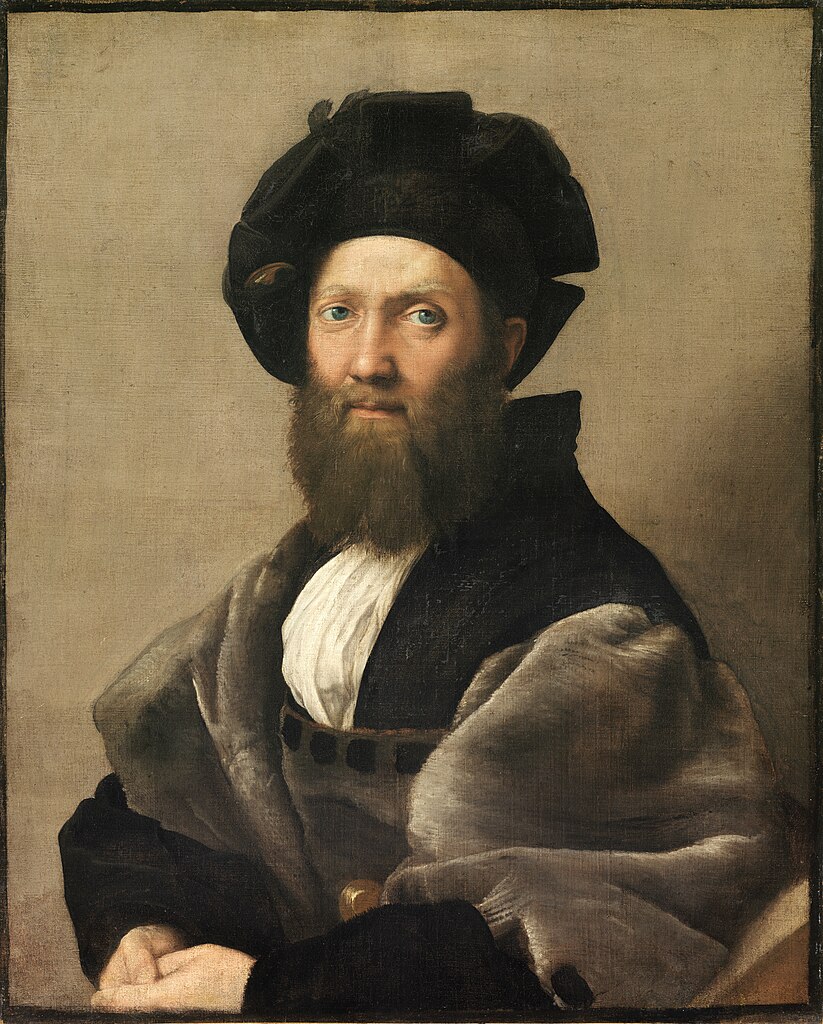
One of my favorite books of all time is The Compleat Gentleman, by Brad Miner, now Senior Editor of The Catholic Thing. In his book Mr. Miner spends one of his chapters discussing a manual for courtiers written during the Italian Rennaissance by Baldassare Castiglione, who coins what I think is a very useful term: Sprezzatura. I am forever in Mr. Miner's debt for this (and for a number of other ideas of his that I've incorporated into my life).
Sprezzatura is the art of concealment. It is doing difficult things and making them seem easy. In Castiglione's own words it "conceals art, and presents what is done and said as if it was done without effort and virtually without thought."
Consider this scenario: You're eating a picnic lunch by the river. A truck pulls up and a man lumbers out, trips on a rock and staggers to the back. He drags out a canoe and drops it on his foot, swearing. He hauls the canoe over rocks, scraping and sliding, until he plops it in the water. It starts to drift away. He swears again and wades in, and perches the canoe half up on the bank. He looks around, confused, and then wanders back to the truck. He rummages around for a paddle, finds it, lumbers to the canoe, plops in and almost capsizes it, and then paddles off, the little boat zig-zagging with every stroke of the paddle.
Now this: a man pulls up in a truck, lifts a canoe out of the back, perches it on the bank, returns for a paddle, sits down and effortlessly slides off into the current with a low "swish."
The second man exhibited sprezzatura.
Now as Stoics should it matter? No... I suppose not. On the other hand we're not Cynics. We aren't throwing lentil soup on people to make a point, as Crates did to Zeno.
I submit that since the Renaissance saw a resurgence of interest in Stoicism, and since virtue involves becoming an excellent human, we might consider doing what we do with a little style.
"But all is opinion."
True, but that statement is NOT synonymous with "It doesn't matter what other people think."
If a Stoic takes part in public life, for example, what other people think "matters" a great deal, since the Stoic is attempting to influence them. Remember that we are not meant to sit alone on our mountain tops in quite contemplation. We're meant to be serving our brothers and sisters, down in the belly of society. To do that it may be useful to be thought of as dignified and competent.
Take as your example our very own philosopher king. I suppose that Marcus Aurelius probably appeared in public in tunic AND toga, the formal garment. He certainly appeared so for his bust. Why bother? Because he wasn't a Cynic. He was the Emperor of Rome. He had a role to play. He LOOKS like an emperor.
Now he did this simply and modestly. He sold off imperial treasures to fund wars rather than raise taxes. He avoided gaudy display. He was both aware of his image and he was stoic about it. He controlled how he presented himself and other people controlled how they percieved him.
He also displayed Sprezzatura in his philosophical life. He doesn't seem to have been a Stoic evangelist. He was widely admired for being the same at the end of his reign as he was at the beginning. He had a reputation for fair play and magnanimity. He concealed the source of his excellence: Stoicism. His great work was meant to be destroyed with him. Had his friends not disobeyed him The Meditations wouldn't exist. That, friends, is sprezzatura. That's style.

Take as another example that descendant of the Roman emperor: the Pope. One thing that Pope Francis has been widely praised for is his simple dress. Notice, however, that he still looks like the Pope. He's dressing to be seen, but he dresses simply. Sprezzatura.
* * *
All images are public domain


No comments:
Post a Comment